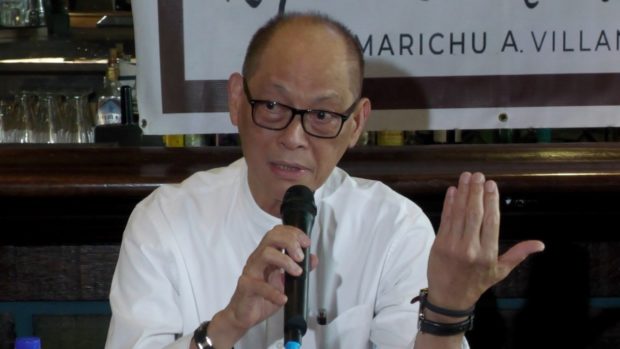MUP pension cost sharing plan gains ground
MANILA -Proposed measures mandating contributions from military and uniformed personnel (MUP) for their pension benefits are gaining ground in the House of Representatives as Finance Secretary Benjamin Diokno assured these stakeholders that, while this would mean an expense for them, it would also be beneficial over the long run.
Diokno said in a statement the MUP pension fund will be funded through the MUP’s contributions, with a corresponding government share, and supplemented by the proceeds from the sale or lease of MUP assets.
Lawmakers are looking at a contribution rate of 21 percent, ultimately comprising 9 percent from the personnel themselves and 12 percent from the government. Also, they are looking at a possible sharing scheme of 5 percent from the MUP and 16 percent from the government as a transition to the intended 9- and 12-percent sharing scheme.
READ: Government savings eyed to help fund MUP pension
Sustainability issue
“The core objective of the government’s efforts to reform the pension system for military and uniformed personnel is to address the unsustainability and uncertainty of the current pension system,” Diokno said.
“Through these reforms, we can ensure the timely delivery of fair retirement benefits to men and women in service, while gradually lessening the strain on the government budget over time,” he added.
The finance chief reiterated that the current MUP pension system’s dependence on full government funding exposes it to economic and fiscal downturns and compromises its stability and reliability.
Diokno said that in the past few years alone, pension arrears—which are supported through government borrowings—amounted to P3.7 billion in 2021 and P3.26 billion in 2022, The estimate for 2023 is P5.2 billion and P4.8 billion for 2024.
“The goal is to craft a pension system that factors in the welfare of the military and uniformed personnel in active service and retirees, while making sure it is sustainable and can withstand the test of time,” he said.
“The emerging consensus provides a framework that balances the welfare of MUPs and the fiscal health of the MUP pension system,” he added.
Diokno also assured the soldiers, policemen, and other uniformed personnel that while the reform bill will require them to give a contribution, this is beneficial to them because it gives them full ownership and vested rights over the pension fund.
READ: MUPs assured of fair pension reform law
Also, the Marcos administration’s economic team is exploring the possibility of introducing mitigating measures such as loan restructuring to ease the impact of mandatory contributions on personnel with heavy personal loans.
Filed in the Lower Chamber are House Bills No. 7, 667, 1825, 2015, 3592, 3728, 3887, 7511 and 8150 – all for the creation of a sustainable fiscal framework for the pension system of the MUPs.
The bills also provide mechanisms for the disposition of government assets as well as the appropriation of funds for this purpose.
READ: Lawmakers propose ‘win-win’ solution to MUP pension issue
At the same time, Deputy Speaker Ralph Recto also filed House Resolution No. 220 on an inquiry into the viability of the prevailing pension programs of MUPs, with the intent of ensuring equitable allocation of government resources, adequate benefits and assistance to Filipino pensioners, and the sustainability of government pension programs.
Recto also sponsored HB 2556, which proposes to amend the Government Service Insurance System Act of 1997 for the purpose of strengthening the MUP pension system, and creating an MUP Insurance Fund. INQ

